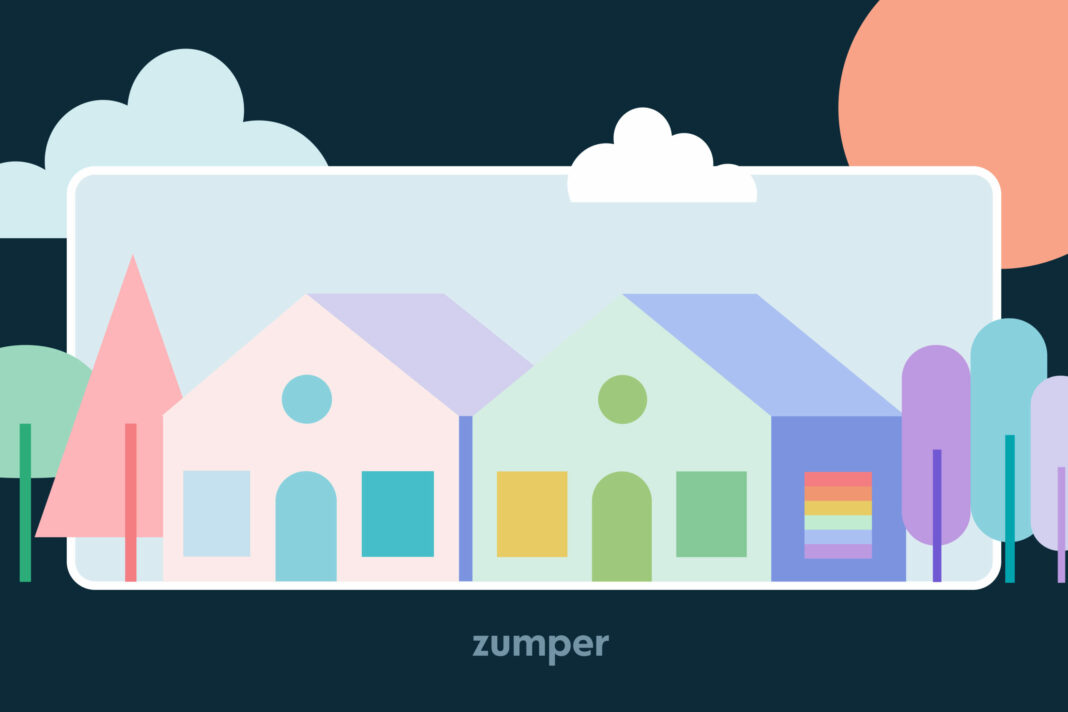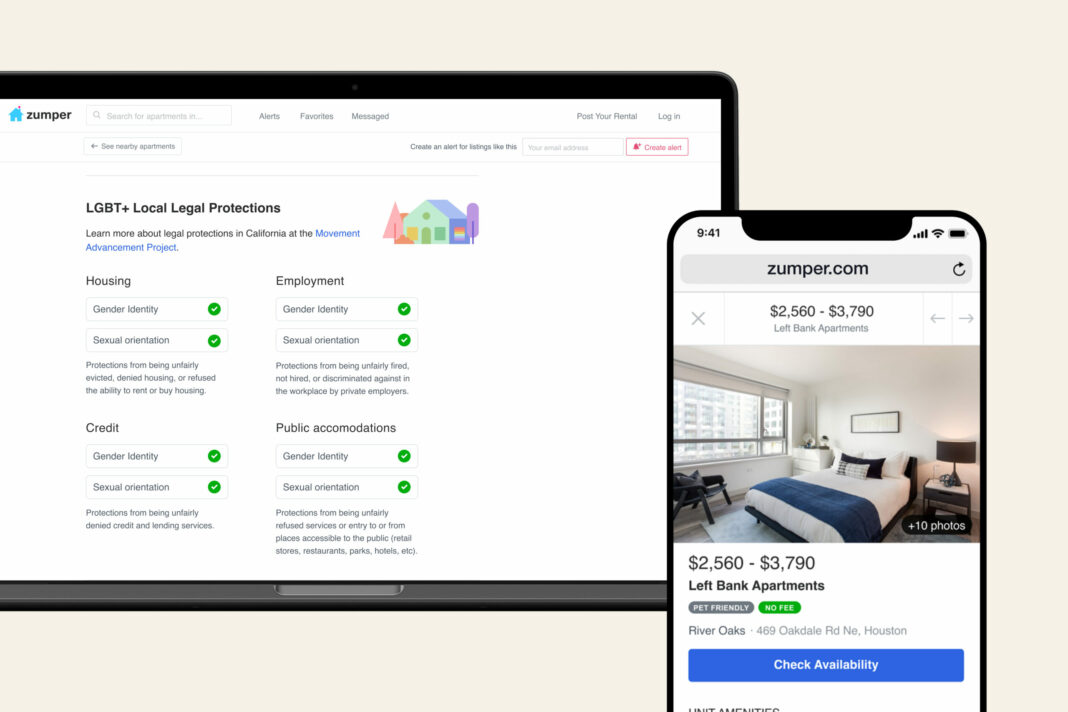
As we celebrate the courage and resilience of LGBTQ+ people during Pride Month, it is also a time to highlight the challenges the LGBTQ+ community continues to endure when it comes to finding housing. Research finds that LGBTQ+ people are more likely to face housing unaffordability, less likely to own their homes, and experience high rates of discrimination when renting or buying a home.
Across the country, progress has been made regarding the prohibition of housing discrimination based on sexual orientation and gender identity. Specifically, 22 states have laws explicitly prohibiting discrimination in housing based on sexual orientation and gender identity. And more than 300 cities and counties in states lacking statewide protections prohibit discrimination through local ordinances. For more than a decade, the Movement Advancement Project (MAP) has been tracking state and local laws and policies that impact LGBTQ+ people and their families. We know that when LGBTQ+ and their allies—family, friends, advocates, the media, the public, and policymakers—better understand the experiences of LGBTQ+ people and the patchwork of protections they still experience, that’s when change happens.
That’s why we’re so excited to partner with Zumper on a new feature to help LGBTQ+ renters navigate the layers of housing protections and know their rights in case they do experience discrimination. Starting on July 6, 2021, Zumper has made it so renters can locate areas that protect marginalized communities to ensure safety, inclusivity, and acceptance on every listing of their website. There are a variety of categories that have information on local legal protections, in addition to housing, including employment, credit, and public accommodations.

If you, or someone you know, experiences housing discrimination, such as being turned away or charged more because of your sexual orientation or gender identity, there are a couple of places to turn.
Regardless of where you live, you can file a complaint with the U.S. Department of Housing and Urban Development here. Since 2012, the U.S. Department of Housing and Urban Development (HUD) has prohibited discrimination against LGBTQ+ people in federally funded housing and in mortgages insured by the Federal Housing Administration. However, just this year, following a U.S. Supreme Court decision finding that discrimination against LGBTQ+ people is a form of sex discrimination, HUD announced that any anti-LGBTQ discrimination in the rental or sale of housing is illegal under the Fair Housing Act. Because the Fair Housing Act prohibits discrimination based on sex, and the U.S. Supreme Court has ruled that sex discrimination includes discrimination based on actual or perceived sexual orientation or gender identity, you can file a complaint through the federal Office of Fair Housing and Equal Opportunity here.
Check and see if your state law prohibits discrimination based on sexual orientation and gender identity. Currently 22 states and the District of Columbia explicitly prohibit discrimination in housing based on sexual orientation and gender identity. For example, the New York State Division of Human Rights enforces New York’s Human Rights Law, which contains such prohibition. One additional state (Wisconsin) prohibits discrimination based on sexual orientation only, and seven states have interpreted their own state laws prohibiting sex discrimination in housing to protect LGBTQ+ people. See if your state has such protections. If they do, you can file a complaint with the state office tasked with enforcing housing laws – typically the state’s civil rights commission or housing agency. You can find your agency here. Remember regardless of whether your state has protections, you can also file a complaint through the federal Office of Fair Housing and Equal Opportunity here.
If your state doesn’t have protections, your city or county might! There are more than 300 cities and counties in states lack state-level protections that have taken steps to protect their LGBTQ+ residents from discrimination. If you’ve experienced housing discrimination, you can file a complaint through your city’s enforcement agency. Check out what protections exist in your city here. Remember regardless of whether your state or cities has protections, you can also file a complaint through the federal Office of Fair Housing and Equal Opportunity here.
More information on the interactive map below.
About Movement Advancement Project (MAP)
Founded in 2006, the Movement Advancement Project (MAP) is an independent, nonprofit think tank that provides rigorous research, insight and communications that help speed equality and opportunity for all. MAP works to ensure that all people have a fair chance to pursue health and happiness, earn a living, take care of the ones they love, be safe in their communities, and participate in civic life. MAP works to achieve these goals in three key ways: advancing the conversation, policy, and collaboration. Find out more at our website here.
To learn more about Zumper’s Fair Housing policy click here.



